'Toxic' NHS trust told to improve by inspectors
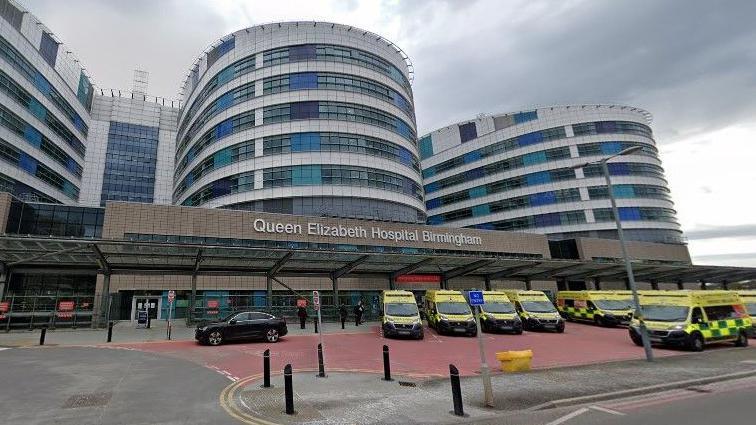
- Published
An NHS trust, criticised over cases of bullying and a toxic environment, has been told to make improvements following an inspection.
The Care Quality Commission (CQC) told University Hospitals Birmingham (UHB) to make improvements, especially around its culture.
Addressing the report, Parliamentary and Health Service Ombudsman, Rob Behrens, said: "People are worried about speaking out for fear of repercussions."
The NHS trust said: "We know that culture change cannot be fixed rapidly, or superficially, and that we have a considerable amount of work to do so that the changes are felt by all colleagues."
'Failing to learn'
In September 2023, an independent review commissioned by the trust found that more than half of staff said they felt bullied or harassed, leading to UHB apologising for "unacceptable behaviours".
Last month, the doctor in charge of medical training for NHS England apologised unreservedly to the family of a medic who worked at UHB who took her own life.
A UHB spokesperson previously said it needed to learn following Dr Vaish Kumar's death after she left a suicide note blaming her death entirely on the hospital where she worked.
Following the inspection, UHB has now been re-rated as requires improvement overall.
Its rating has declined from good to inadequate at being well-led, but the trust was rated as good for being effective and caring.
Critical care
The inspection also looked at critical care services at the Queen Elizabeth Hospital Birmingham, due to concerns received from whistleblowers around staffing levels and culture.
Inspectors found there were challenges to ensure all areas had staff with the right training and experience to keep people safe from avoidable harm, and to provide the right care and treatment.
The rating for critical care has declined from outstanding to requires improvement.
The ombudsman said: "This report reinforces what I have long been saying about patient and staff welfare and the culture at University Hospitals Birmingham.
"While we have seen signs of improvement when working with the Trust, there is further evidence here that change has not been fundamental it is failing to learn from mistakes.
"Those working at the Trust should be treated fairly and feel valued. They should be able to raise concerns and feel confident that when they do, they will be listened to.
Birmingham and Solihull Integrated Care Board (ICB) welcomed the CQC report, and said that the trust had undertaken one of the biggest reviews of culture in the NHS, involving over 4,000 members of staff.
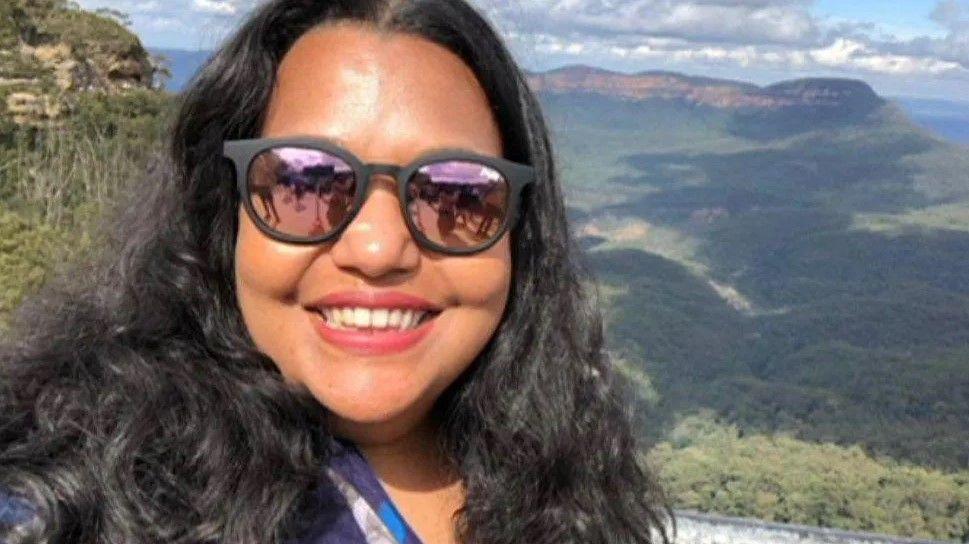
Doctor Vaish Kumar left a suicide note blaming her death entirely on the hospital where she worked
Charlotte Rudge, CQC deputy director of operations in the Midlands, said: "Although there were the beginnings of change and recovery, and recognition of present and past concerns, there had not yet been sufficient time to demonstrate progress and for leaders to show they were dealing with the risks, issues, and challenges in the service."
She added: "Some staff didn’t feel safe and protected from bullying and harassment, which had a negative effect on their wellbeing.
"This is completely unacceptable and must be addressed by leaders as a priority to enable staff to feel supported and be able to provide the best possible care to people."
However, the CQC found that the trust's wellbeing arrangements for staff experiencing hardship, including food parcels and financial support were outstanding.
They also found notable improvements in senior leaders becoming more visible and approachable in the trust for people and staff.
Ms Rudge concluded: "Despite these issues, staff were still focused on the needs of people receiving care and on providing the best treatment they could."
'We have changed'
Dame Yve Buckland, the chair at UHB, and chief executive Jonathan Brotherton, said the CQC's findings were "very similar" to reviews into the organisation reported throughout 2023, "prompting swift action and on-going transformation".
"We are pleased that the CQC’s findings recognise that while improvement is still in its early stages, with good initial work done, the significant change required will take time," they said.
The pair said that the trust had "zero tolerance" to racism, misogyny, and all forms of discrimination.
They also said they were encouraged that more colleagues felt confident to speak up but that they wanted everyone to feel safe to do so.
The Trust leaders also said they were disappointed that critical care services at the Queen Elizabeth Hospital had declined from outstanding to requires improvement.
They said "significant improvements" had been made since the inspection with recruitment and retention, within a department "made fragile" by being on the frontline of the pandemic.
A timeline of troubles at the trust
November 2022: An inquest is told that trainee doctor Vaish Kumar, 35, who was based at the Queen Elizabeth Hospital, had told her parents she had been belittled by consultants there before she took her own life
December 2022: The NHS announces three major reviews of the hospital trust after a BBC Newsnight probe was told a climate of fear among staff put patients at risk
September 2023: An independent review of the trust finds more than half of staff said they felt bullied or harassed
October 2023: The trust reveals it has dismissed three members of staff following complaints of sexual harassment.
February 2024: The doctor in charge of medical training for NHS England apologises unreservedly to the family of Vaish Kumar
Follow BBC West Midlands on Facebook, external, X, external and Instagram, external. Send your story ideas to: newsonline.westmidlands@bbc.co.uk, external
- Published14 February 2024
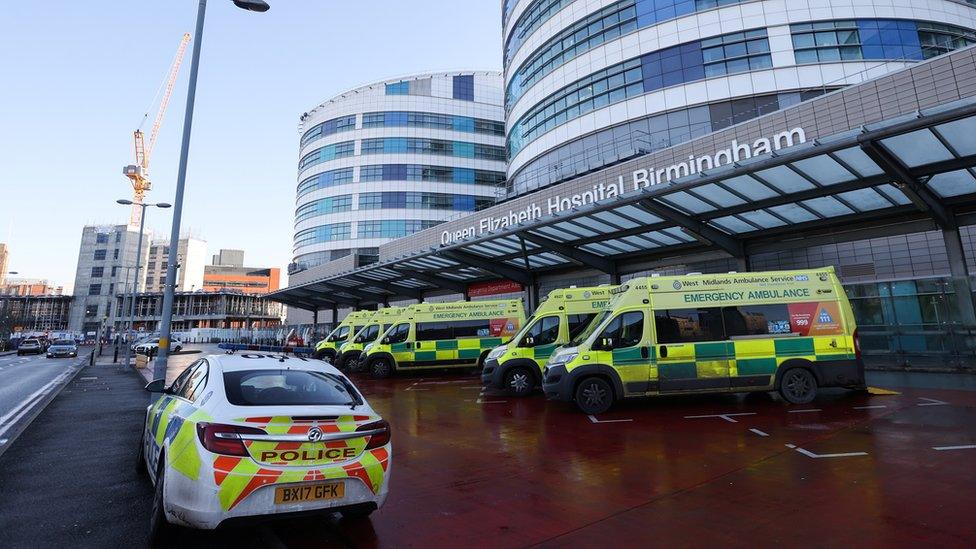
- Published13 February 2024
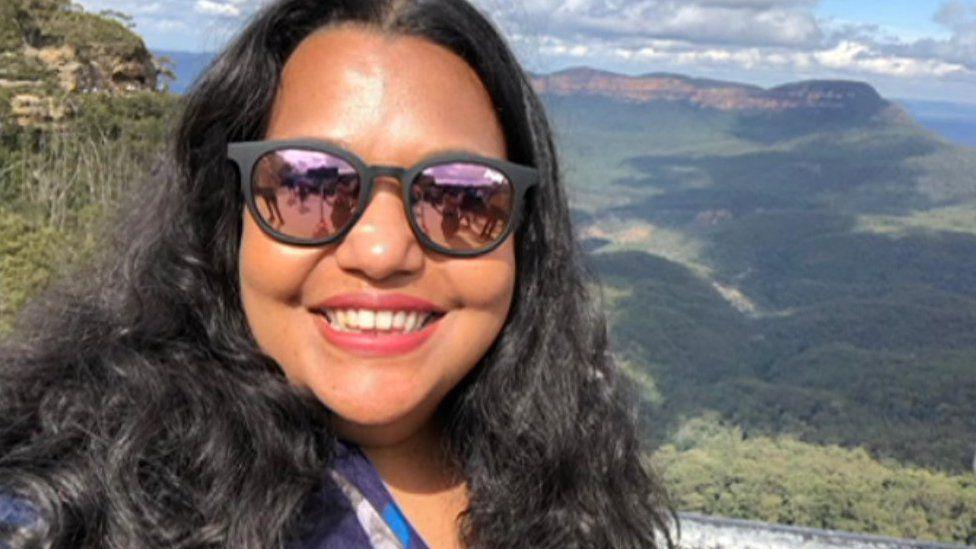
- Published4 April 2023
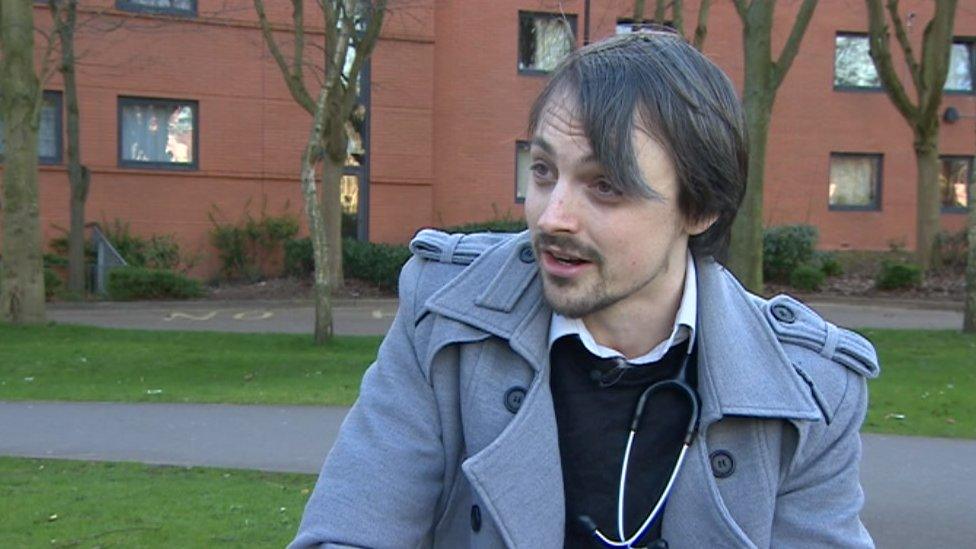
- Published9 December 2022
